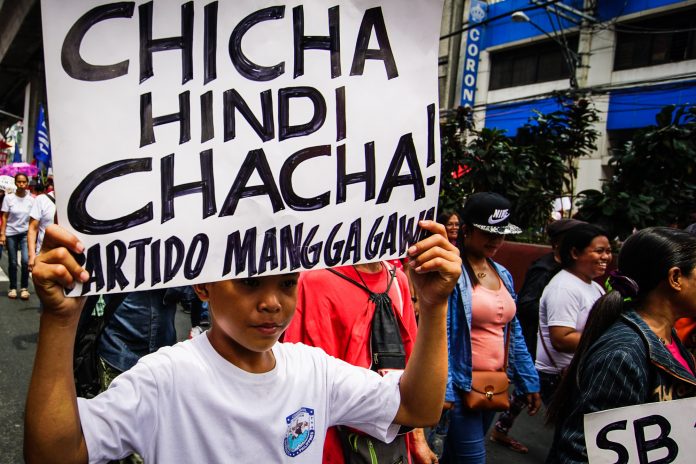This is a valid question to ask when the entire nation is preoccupied, on the one hand, with preventing more infections and deaths from COVID-19 and, on the other, with jumpstarting the economy and helping the poor and the disadvantaged sectors to get back on their feet.
Indeed, why change the 1987 Constitution at this time when the government at both the national and local levels, the private sector and civil society should united in uplifting the lives of those adversely affected by the public health crisis?
Catholic bishops are entirely correct in raising serious doubts about the wisdom of tinkering with the fundamental law at this time.
Bishop Broderick Pabillo, apostolic administrator of the Manila Archdiocese, pointed out that politicians should be sensitive to the needs of the people: “It is not Charter change that the people need but food, jobs, health, education.”
For his part, retired Bishop Arturo Bastes believes that Charter change is “self-serving” and a “very bad move…. There is no need for Charter change now.”
It’s not only the Church that looks askance at the proposal of the group of mayors belonging to the League of Municipalities of the Philippines for Congress to put the Charter change issue on the table.
Vice President Maria Leonor “Leni” Robredo said the government must focus on the country’s uphill battle against the coronavirus pandemic than on changing the Constitution.
Even Malacañan Palace denies any involvement in the renewed Charter change push by town executives.
Presidential spokesman Harry Roque said amending the Constitution was never mentioned by President Duterte in his weekly address to the nation.
But the other question we’d like to ask is this: Why would LMP, from out of the blue, pass a resolution proposing several amendments to the 1987 Constitution?
This is quite puzzling, to say the least.
Among the proposals of the local executives is the lifting of restrictions on foreign investment in industries currently limited to Filipinos.
They claim that allowing majority ownership by foreign investors of some local companies will be “beneficial” to their constituents, for as long as workers’ rights are protected and the prohibition of foreign ownership of land is assured.
But why would town mayors be suddenly be interested in lifting restrictions on foreign investment when COVID-19 has also affected the global economy? Why would foreign investors want to put money, say, in a business enterprise in a town in Basilan province where the Abu Sayyaf bandit group still operates? Or perhaps in a town in economically distressed Bicol region where New People’s Army rebels attack isolated government outposts from time to time?
As we know, the LMP exists under the supervision of the Department of Interior and Local Government. This department has been actively pushing for the shift to a federal system of government even amid the COVID-19 pandemic, on the ground that federalism would spur countryside development better than the current unitary/presidential system.
Federalism, however, will not work in a situation where entrenched political families are able to wield both political and economic power at the same time. The framers of the 1987 Constitution, aware of the ascendancy of political dynasties throughout the country especially since the postwar era, saw it fit to include a specific provision prohibiting political dynasties, but left it to Congress — where representatives of political dynasties are a dime a dozen — to craft an enabling law. No wonder that bills filed to ban political dynasties invariably ended up in the trash can.
It’s not just foreign investments the mayors want to invite to come over. We suspect that the LMP resolution to open debates anew on Charter change may in fact be just a ruse to lift term limits of elected officials and allow them to hold on to power for as long as they want.
Charter change initiatives since the 1990s have all been shot down in Congress precisely by political families with ulterior motives. It does not look like the current one is motivated by a noble objective, which is the public good, or the national interest, or sustainable countryside development.
On the contrary, it may be driven only by an insatiable lust for power, pelf and privilege that neither a deadly virus nor outrage over government’s less than salutary response to the ongoing pandemic can effectively restrain.
Ernesto M. Hilario writes on political and social justice issues for various publications in the Philippines. The views and opinions expressed in this article are those of the author and do not necessarily reflect the official editorial position of LiCAS.news.









